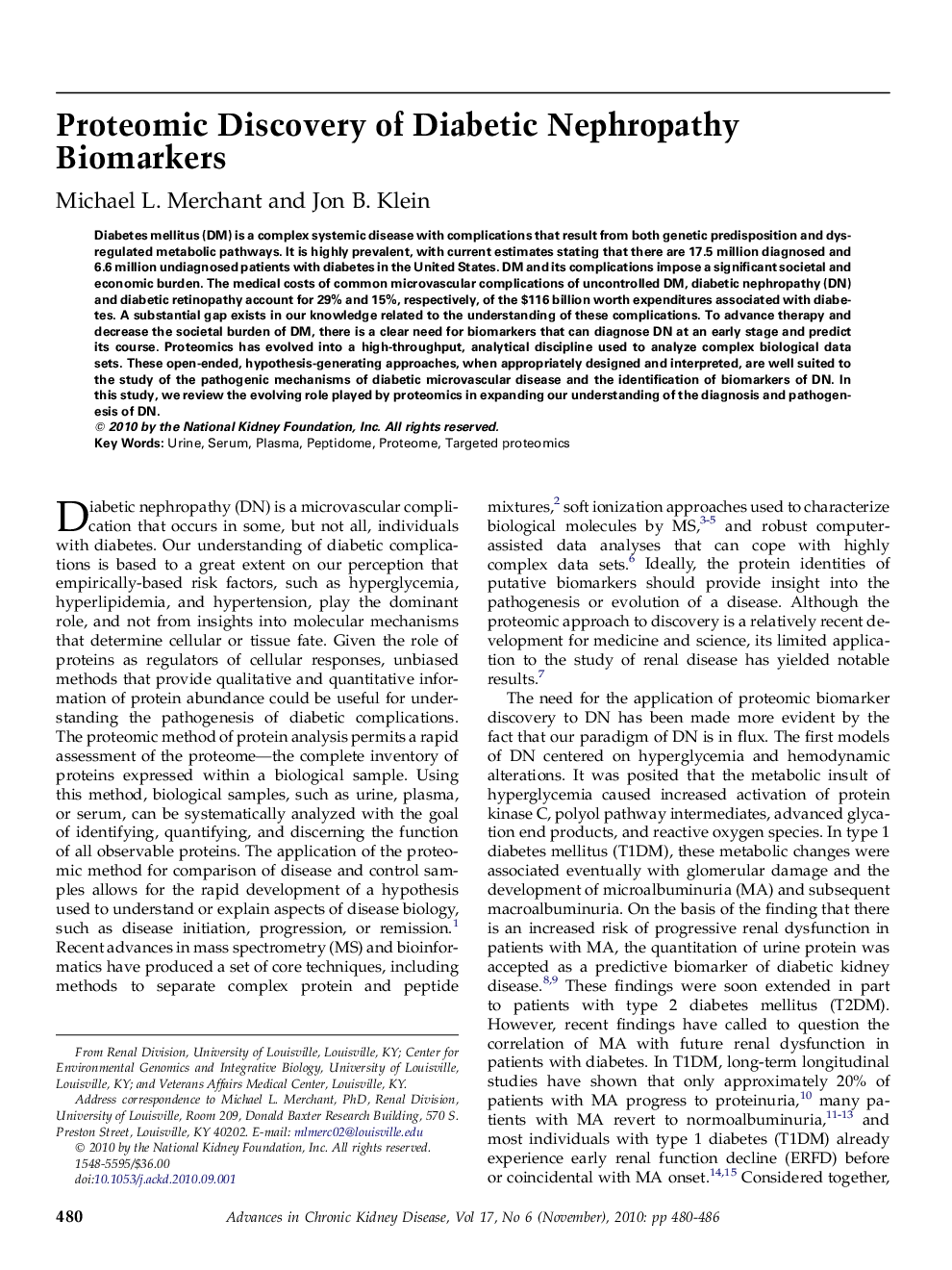| Article ID | Journal | Published Year | Pages | File Type |
|---|---|---|---|---|
| 3846643 | Advances in Chronic Kidney Disease | 2010 | 7 Pages |
Abstract
Diabetes mellitus (DM) is a complex systemic disease with complications that result from both genetic predisposition and dysregulated metabolic pathways. It is highly prevalent, with current estimates stating that there are 17.5 million diagnosed and 6.6 million undiagnosed patients with diabetes in the United States. DM and its complications impose a significant societal and economic burden. The medical costs of common microvascular complications of uncontrolled DM, diabetic nephropathy (DN) and diabetic retinopathy account for 29% and 15%, respectively, of the $116 billion worth expenditures associated with diabetes. A substantial gap exists in our knowledge related to the understanding of these complications. To advance therapy and decrease the societal burden of DM, there is a clear need for biomarkers that can diagnose DN at an early stage and predict its course. Proteomics has evolved into a high-throughput, analytical discipline used to analyze complex biological data sets. These open-ended, hypothesis-generating approaches, when appropriately designed and interpreted, are well suited to the study of the pathogenic mechanisms of diabetic microvascular disease and the identification of biomarkers of DN. In this study, we review the evolving role played by proteomics in expanding our understanding of the diagnosis and pathogenesis of DN.
Related Topics
Health Sciences
Medicine and Dentistry
Nephrology
Authors
Michael L. Merchant, Jon B. Klein,
